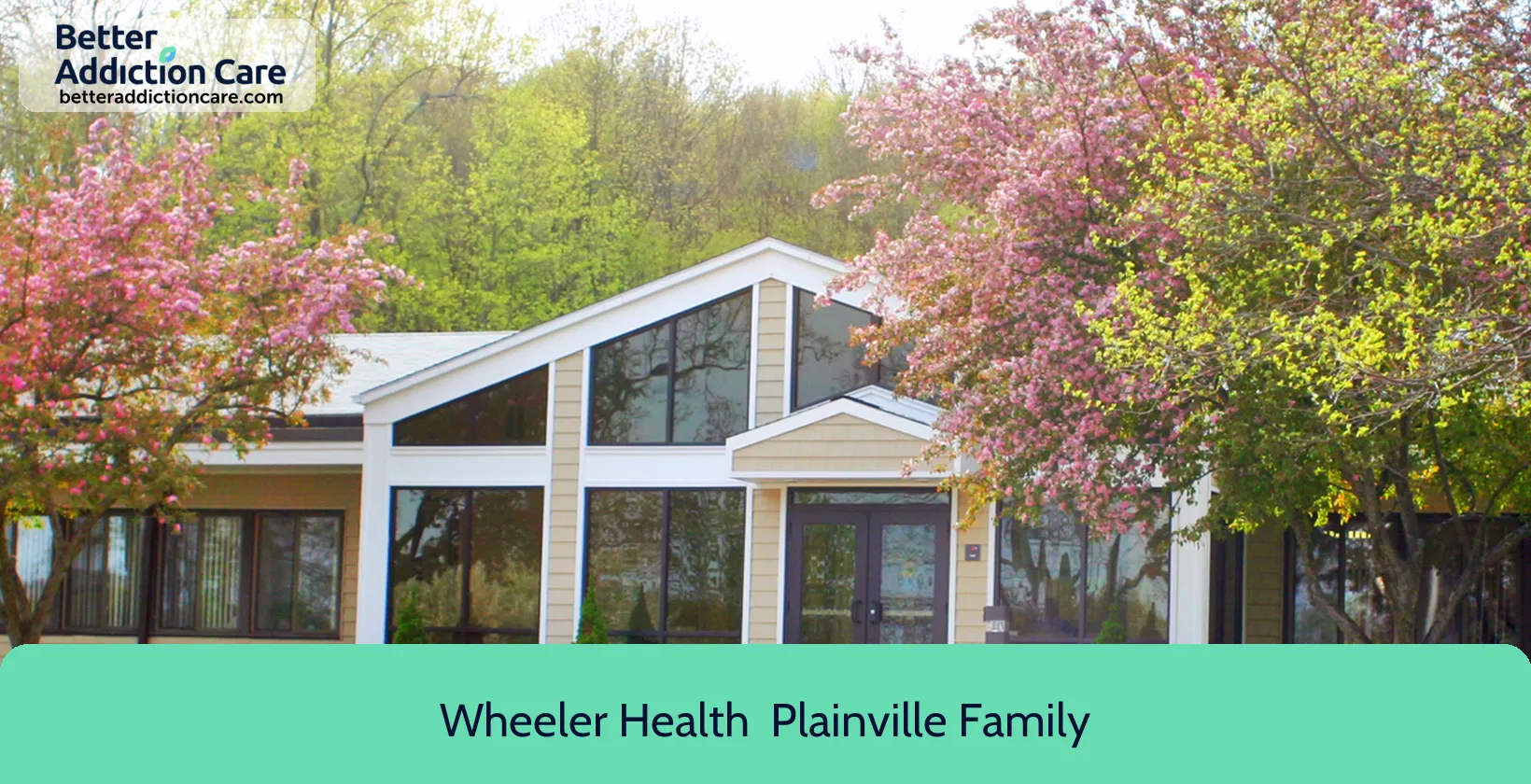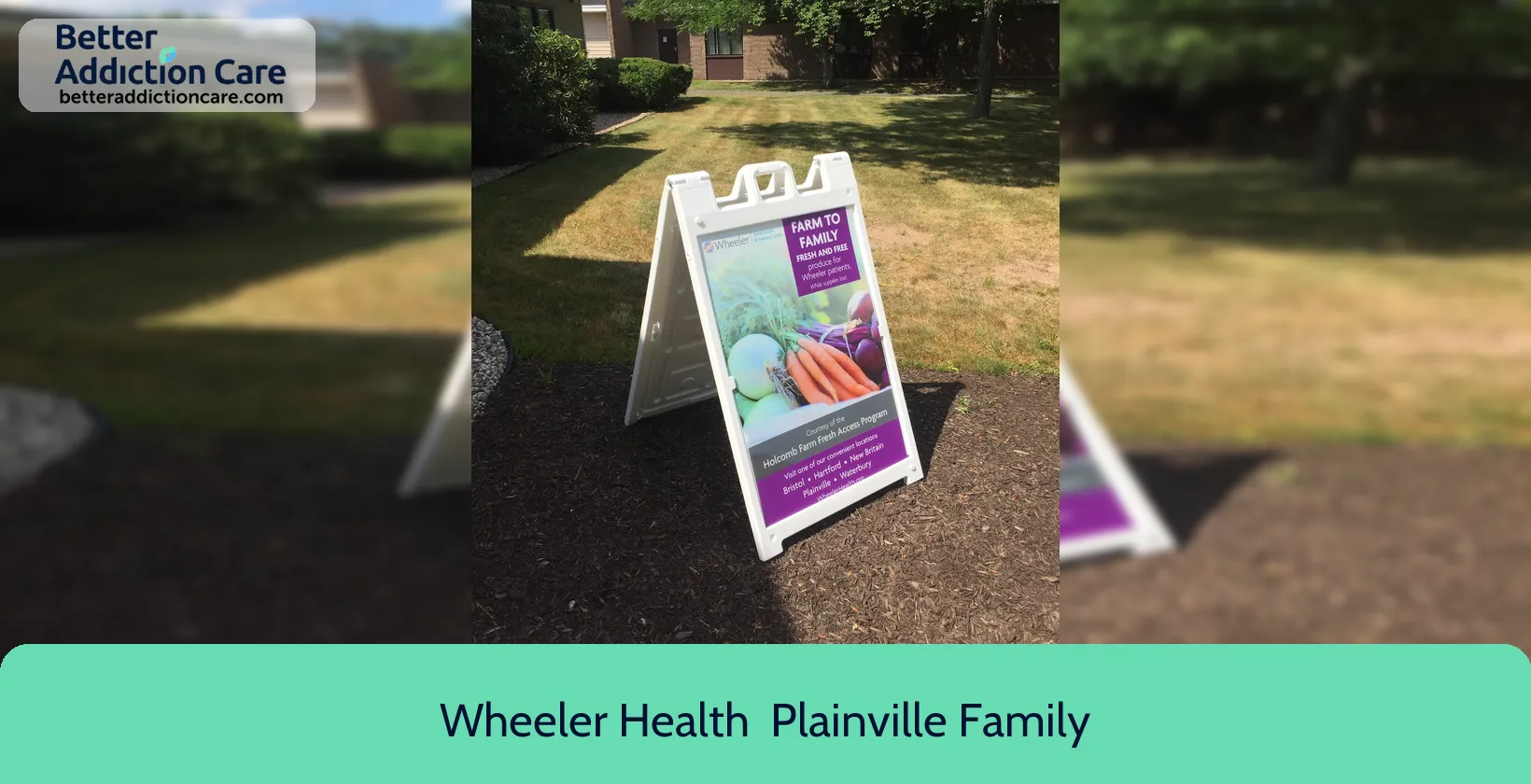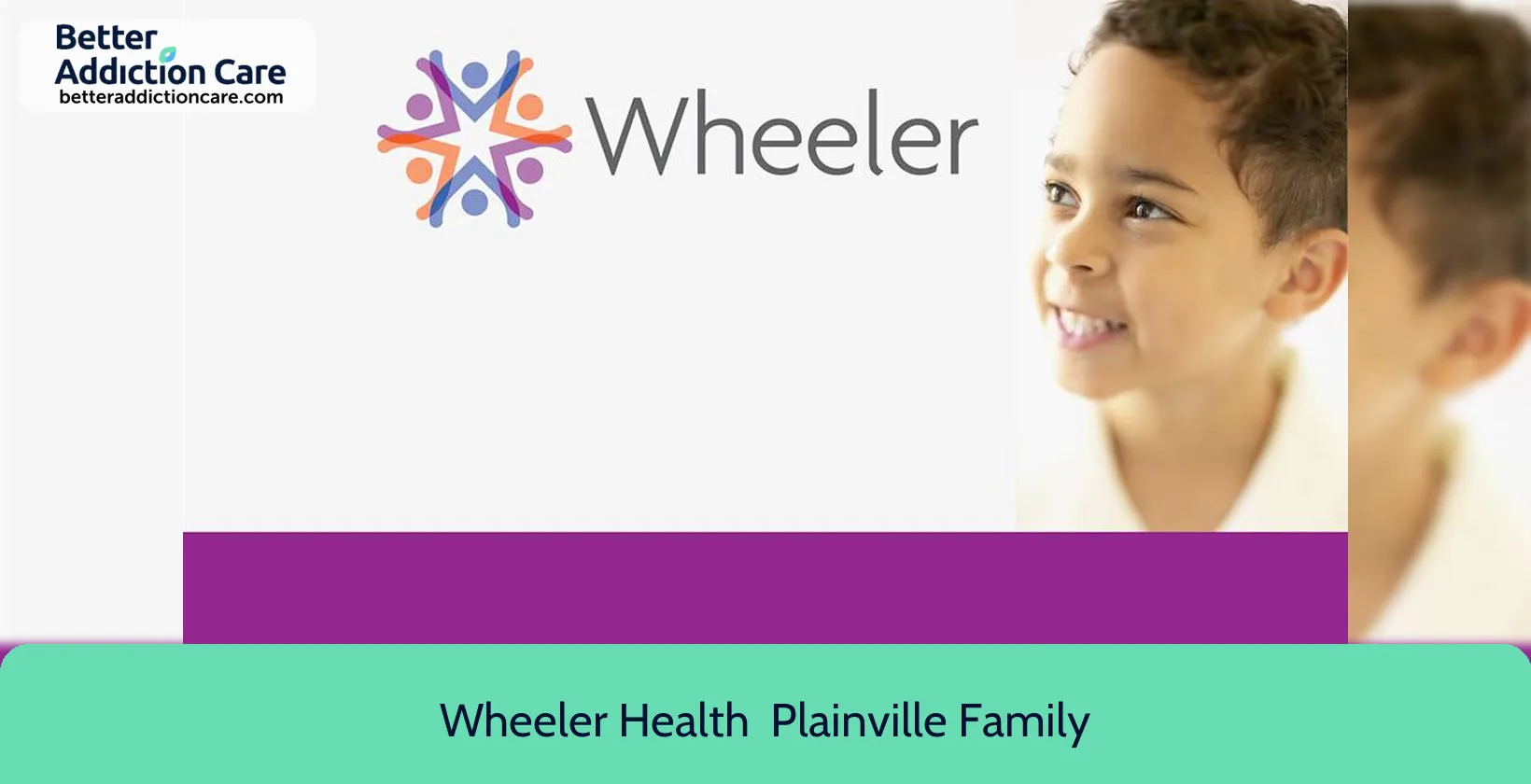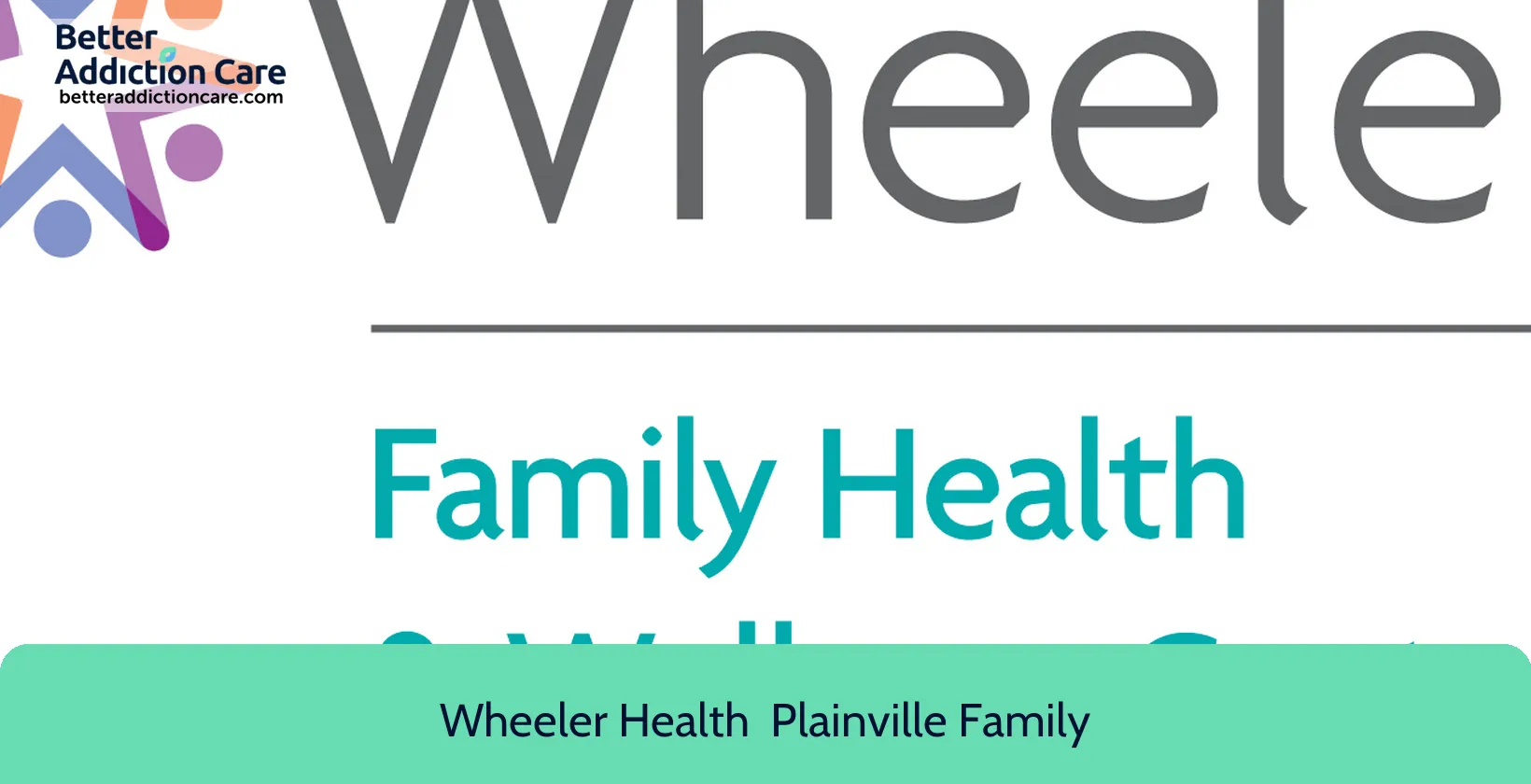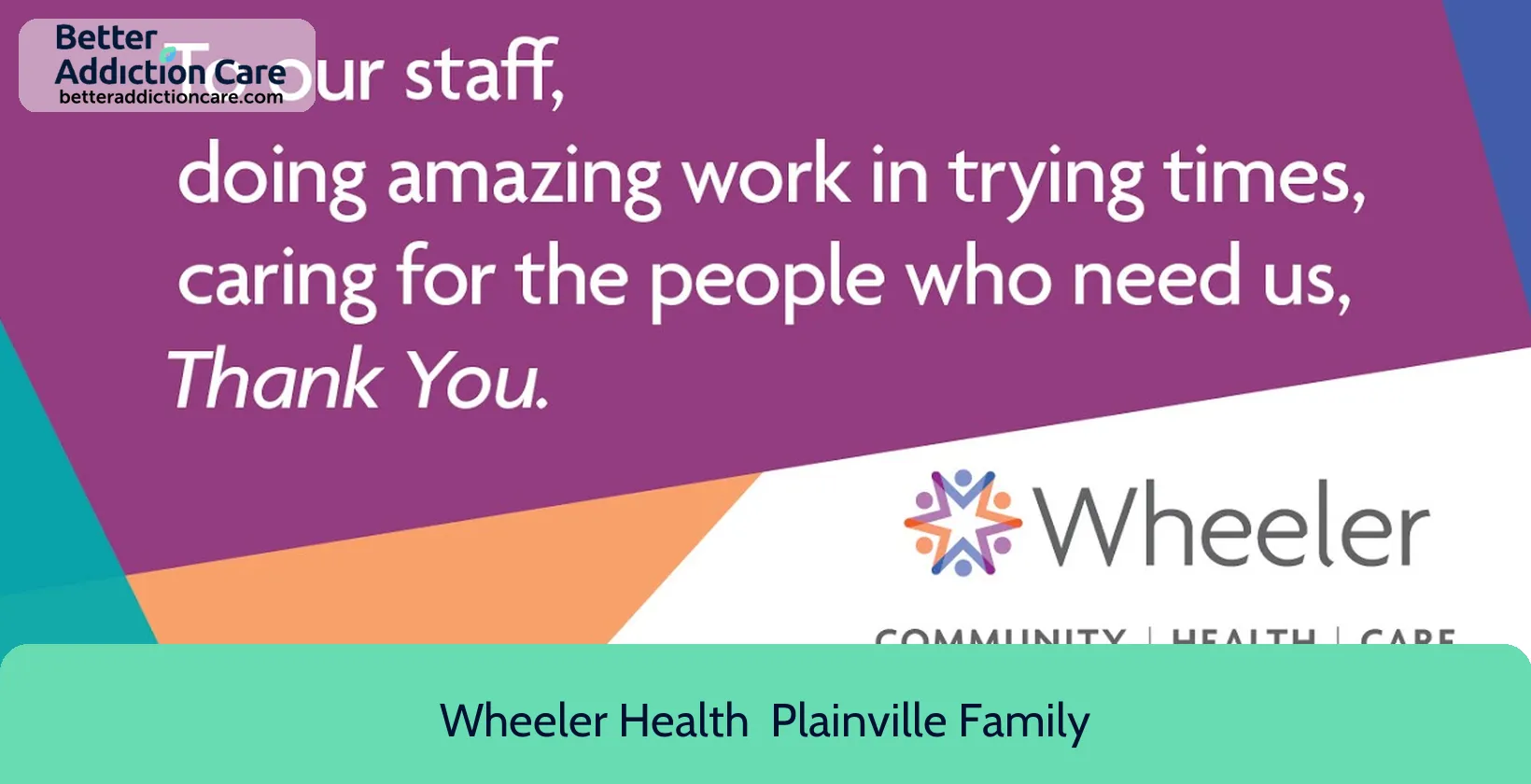Wheeler Health - Plainville Family Health & Wellness Center
Overview
Wheeler Health - Plainville Family Health & Wellness Center is a substance abuse treatment center for people seeking treatment near Hartford County. As part of their treatment modalities for recovery, Wheeler Health - Plainville Family Health & Wellness Center provides family counseling, individual psychotherapy, and group counseling during treatment. Wheeler Health - Plainville Family Health & Wellness Center is located in Plainville, Connecticut, accepting county or local government funds for treatment.
Wheeler Health - Plainville Family Health & Wellness Center at a Glance
Payment Options
- County or local government funds
- Community Mental Health Block Grants
- Community Service Block Grants
- Medicaid
- Other State funds
Assessments
- Comprehensive mental health assessment
- Comprehensive substance use assessment
- Screening for tobacco use
- Outreach to persons in the community
- Screening for mental disorders
Age Groups
- Adults
- Children/adolescents
- Young adults
- Seniors or older adults
- Seniors
Ancillary Services
- Case management service
- Court-ordered outpatient treatment
- Family psychoeducation
- Illness management and recovery
- Integrated primary care services
Accreditations
The Joint Commission:

The Joint Commission, previously known as JCAHO, is a nonprofit organization that accredits rehabilitation organizations and programs. Established in 1951, its mission is to enhance the quality of patient care and showcase excellence in healthcare delivery.
State mental health department:
State mental health department accreditation refers to the process of evaluating and certifying the quality and standards of a state's mental health department, ensuring that it provides high-quality services and meets specific criteria for mental health care. The accreditation process is performed by a third-party organization and helps to improve the overall care and treatment of individuals with mental health conditions.
State department of health:

Government agencies issue State Licenses, granting permission to rehabilitation organizations to conduct their business operations lawfully within specific geographic regions. Generally, the particular rehabilitation programs offered by a facility and its physical location dictate the necessary licenses needed for legal operation.
Federally Qualified Health Center:
Federally Qualified Health Center (FQHC) accreditation is a process of evaluation and recognition by the federal government for community health centers that provide comprehensive and accessible healthcare services to underserved populations. FQHC accreditation is essential for centers to receive federal funding and to ensure that they meet standards for quality, patient-centered care.
Treatment At Wheeler Health - Plainville Family Health & Wellness Center
Treatment Conditions
- Mental health treatment
- Alcoholism
- Opioid Addiction
- Substance use treatment
- Co-occurring Disorders
Care Levels
- Detoxification
- Outpatient
- Hospital inpatient treatment
- Partial Hospitalization Program
- Outpatient methadone/buprenorphine or naltrexone treatment
Treatment Modalities
- Family counseling
- Individual psychotherapy
- Group counseling
- Marital/couples counseling
- Trauma-related counseling
Ancillary Services
Languages
- Sign language services for the deaf and hard of hearing
- Spanish
Additional Services
- Pharmacotherapies administered during treatment
- Mentoring/peer support
- Breathalyzer or blood alcohol testing
Special Programs
- Children/adolescents with serious emotional disturbance (SED)
- Clients who have experienced trauma
- Clients with co-occurring mental and substance use disorders
- Veterans
- Active duty military
Contact Information
Read our Most Recent Article About Drug Addiction
DISCLAIMER: The facility name, logo and brand are the property and registered trademarks of Wheeler Health - Plainville Family Health & Wellness Center, and are being used for identification and informational purposes only. Use of these names, logos and brands shall not imply endorsement. BetterAddictionCare.com is not affiliated with or sponsored by Wheeler Health - Plainville Family Health & Wellness Center.
Your Addiction Doesn't Have To Define Who You Are.
You deserve high-quality treatment and a fulfilling life in recovery.
By calling us, you agree to our Terms & Conditions
